Brain network patterns in patients with multiple system atrophy: spatial independent component analysis using FDG-PET data.
Background and Objectives.
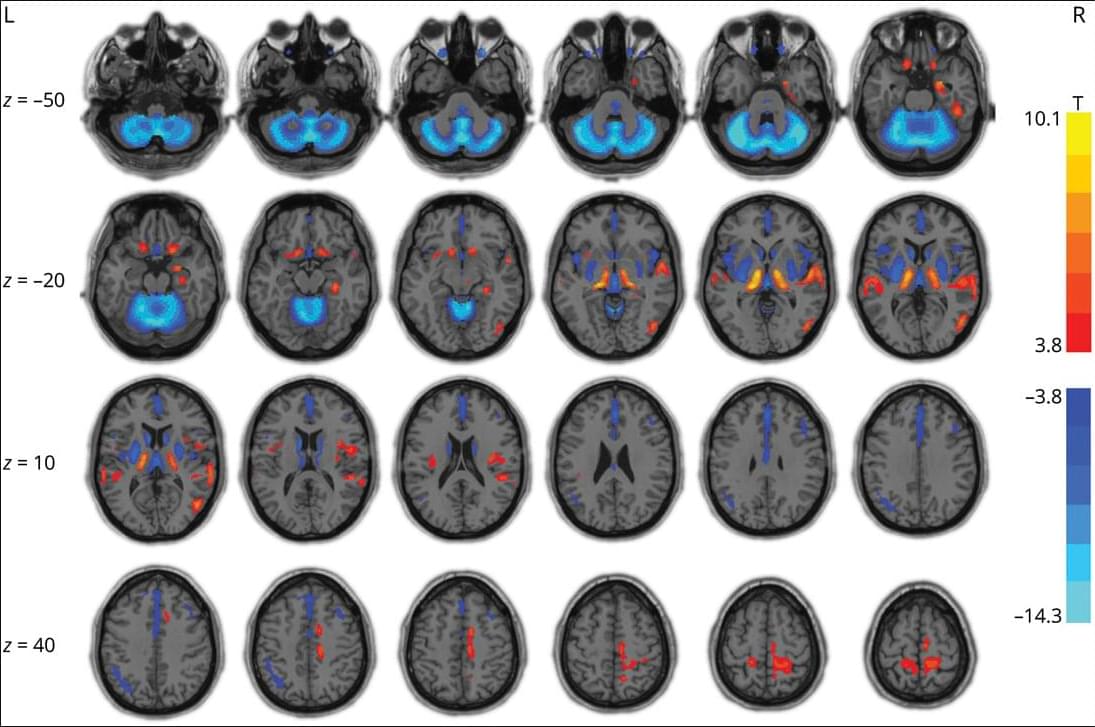
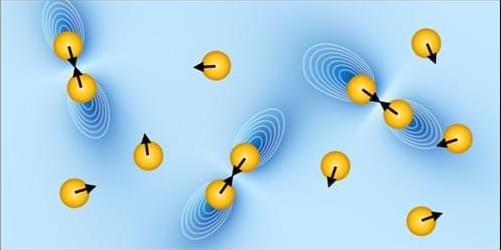
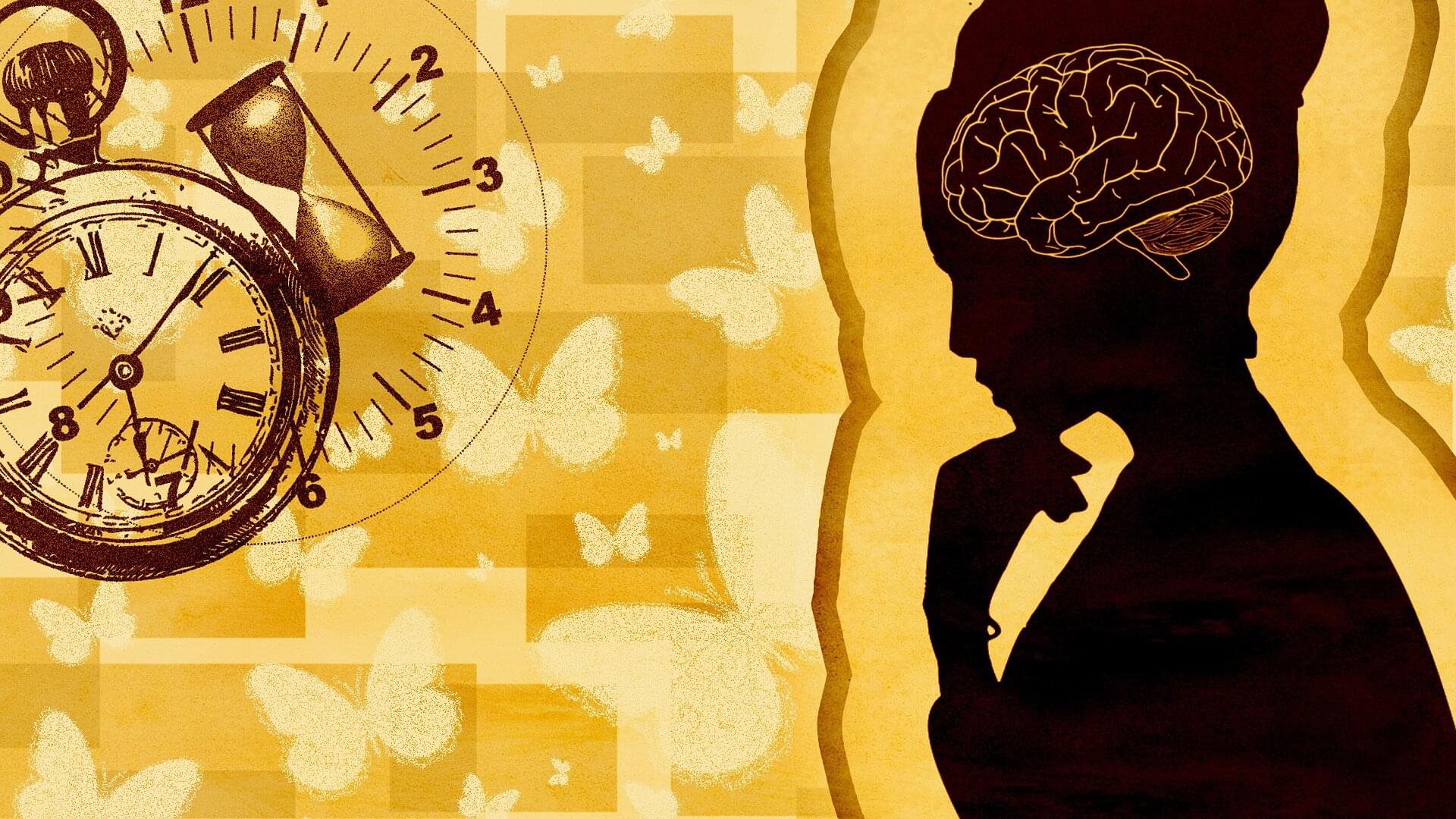
Scientists may have new answers to why pop-ups or notifications grab our attention. Turns out our attention is on a cycle, shifting seven to 10 times per second. This rhythmic occurrence may be crucial for survival, as it prevents us from becoming overly focused on one thing in our environment. It could help us to see a car backing up in a parking lot while we search for where we parked, or to duck to avoid a low-hanging tree branch on a walk while watching a kid ride a bike.
However, these windows that shift our attention could also make us more susceptible to distractions, especially in modern times. As we live in a world surrounded by screens, digital alerts, and other visual stimuli, these frequent and innate windows for shifting attention may make it easier to be pulled away from a task.
“For our ancestors who had to continue to monitor the environment for predators while foraging for food, this was a beneficial trait,” said Ian Fiebelkorn, Ph.D., assistant professor of Neuroscience at the Del Monte Institute for Neuroscience at the University of Rochester and senior author of a study out in the journal PLOS Biology. “But in our modern environment, with laptops open in front of us and a smartphone nearby, rhythmically occurring windows for beneficial attentional shifts might also work against us. That is, rhythmically occurring windows for attentional shifts are also associated with increased susceptibility to distracting information.”
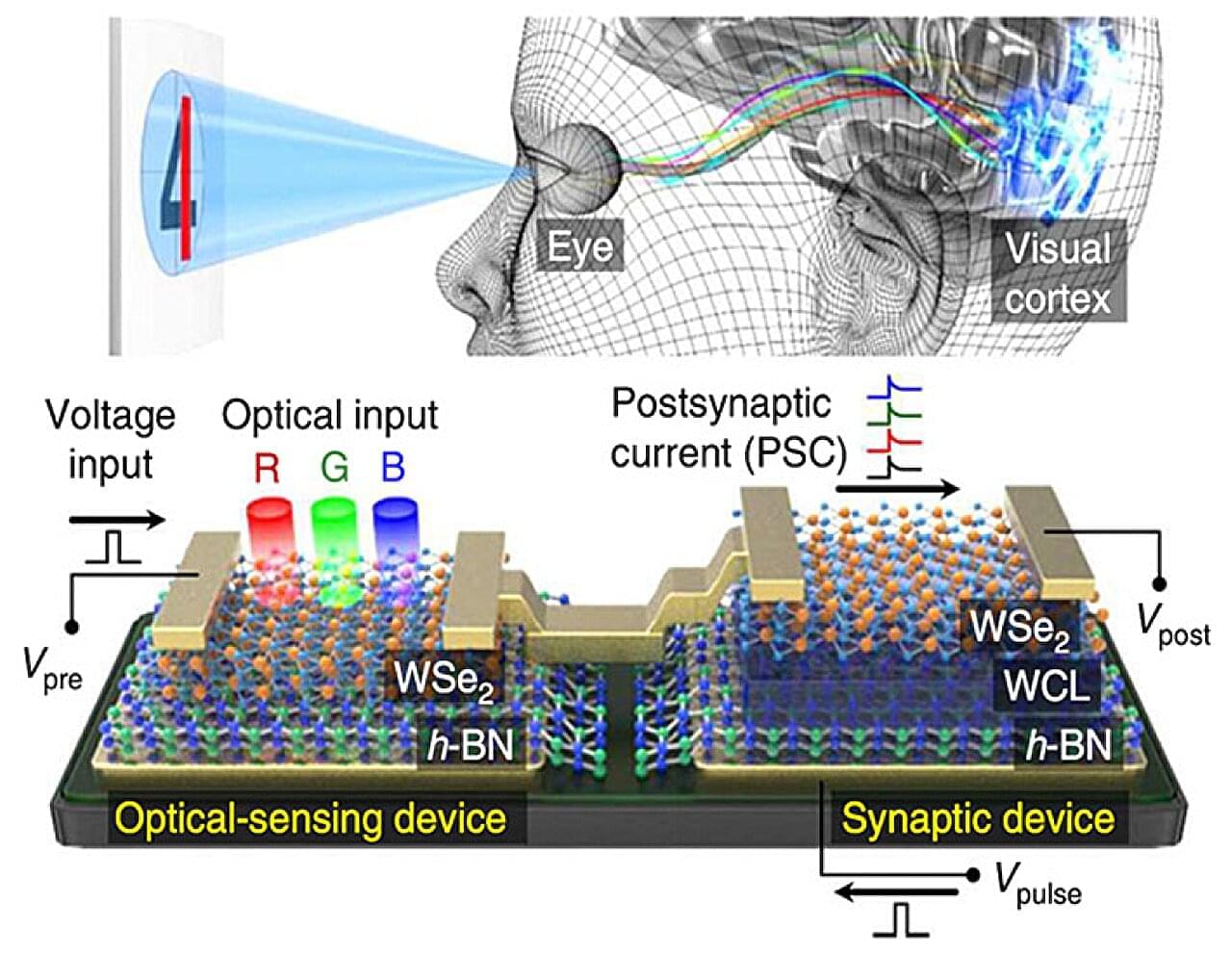
New generations of memristors could reliably store information directly within the molecular structures of graphene-like materials. In a new review published in Nanoenergy Advances, Gennady Panin of the Russian Academy of Sciences shows how these atomically thin materials are ideally suited for electrical circuits that mimic the function of our own brains—and could help address the vast power requirements of emerging AI technologies.
A memristor is a cutting-edge electrical component whose resistance depends on the amount of current that previously passed through it. Because it “remembers” this history even after charge is no longer flowing, it can store data when the power is switched off. In this way, memristors operate in a way remarkably similar to the neurons in our brains and the synapses connecting them.
With their fast response times, combined with simple, two-electrode structures that allow them to be packed into dense arrays, memristors are increasingly forming the building blocks of modern circuits—especially those designed for AI.

Contamination of ground, surface and drinking water by perfluoroalkyl and polyfluoroalkyl substances (PFAS) affects millions of people worldwide. A promising new method developed by Flinders University scientists paves the way to help remove the most difficult-to-capture variants of these persistent pollutants from water.
The research team, led by Flinders ARC Research Fellow Dr. Witold Bloch, has discovered adsorbents that effectively capture PFAS, including short-chain forms that are especially difficult to remove using existing technologies.
The study, published in the Angewandte Chemie International Edition, showcases the use of a nano-sized molecular cage that acts as a highly selective “PFAS trap.”

Researchers at IMDEA Networks Institute, together with European partners, have found that tire pressure sensors in modern cars can unintentionally expose drivers to tracking. Over a ten-week study, they collected signals from more than 20,000 vehicles, revealing a hidden privacy risk and highlighting the need for stronger security measures in future vehicle sensor systems.
Most modern cars are equipped with a Tire Pressure Monitoring System (TPMS), mandatory since the late 2000s in many countries for their contribution to road safety. This system uses small sensors in each wheel to monitor tire pressure and sends wireless signals to the car’s computer to alert the driver if a tire is underinflated.
However, the researchers found that these tire sensors also send a unique ID number in clear, unencrypted wireless signals, meaning that anyone nearby with a simple radio receiver can capture the signal, and recognize the same car again later. Most vehicle tracking today uses cameras that need clear visibility and line-of-sight to a car. TPMS tracking is different: tire sensors automatically send radio signals that pass through walls and vehicles, allowing small hidden wireless receivers to capture them without being seen.
Leiden physicists Daniela Kraft and Julio Melio have created soft structures that can take on different shapes without any external drive in their lab. They present their research on microscale metamaterials in Nature —a breakthrough that opens the door to smart, reconfigurable materials and microscopic robots.
“Metamaterials have completely changed the way we think about materials,” explains Professor of Experimental Physics Daniela Kraft. “In these systems, movements are no longer set by the material itself, but by the structure—the way particles are connected. We set out to create such functional structures at the microscopic scale. And we succeeded.”

Many therapeutic molecules used in cancer treatments are highly toxic, often harming healthy tissues and causing significant side effects. This creates a critical need for strategies that localize their toxic activity to tumors. What if cancer drugs could stay dormant until they reach cancer cells? A new study by Syracuse University researchers demonstrates a promising chemistry-based strategy that could do just that.
Xiaoran Hu, assistant professor of chemistry in the College of Arts & Sciences (A&S), and his team introduced a prototyping “lock-and-key” system that holds therapeutic drugs in an inactive, caged form until a separate chemical trigger releases them at a specific site. The study was published in Angewandte Chemie International Edition. It introduces a new platform to control when and where chemical bonds break inside living systems.
“We are developing a broadly applicable tool that has the potential to regulate the activity of different types of therapeutics,” Hu says. “Think of this as a tool, like a hammer, that could be used on different nails.”
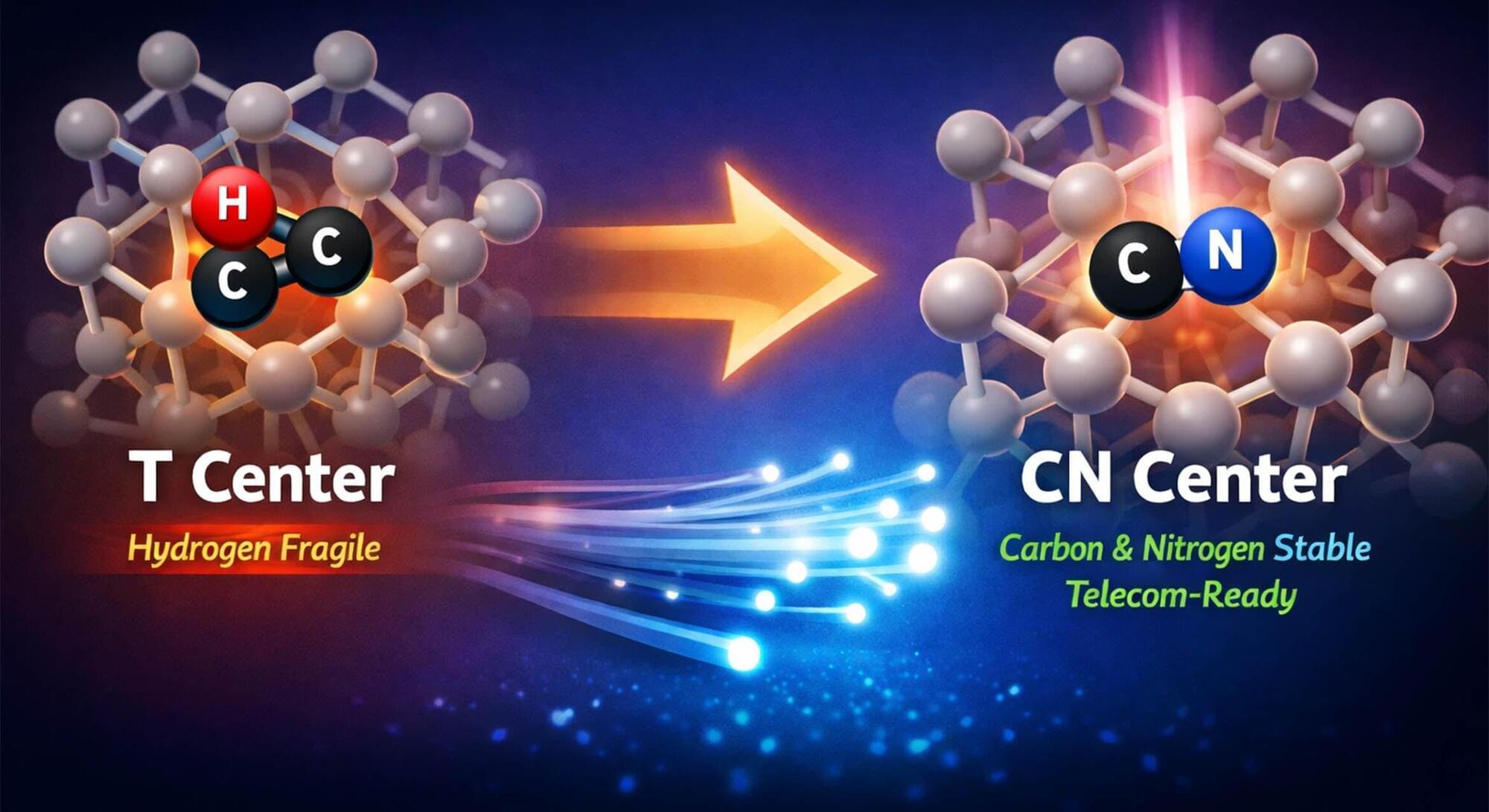
Quantum technologies are anticipated to transform computing, communication, and sensing by harnessing the unusual behavior of matter at the atomic scale. Translating quantum’s promise into practical devices will require physical systems that have desirable quantum properties and can be easily manufactured. Silicon, the material behind today’s computer chips, is highly attractive as a platform because it plays to the strengths of the trillion-dollar semiconductor industry that has already been built. Identifying quantum building blocks—qubits—in silicon is, therefore, an important frontier research area.
In a new study, researchers in UC Santa Barbara materials professor Chris Van de Walle’s Computational Materials Group identified a robust new qubit in silicon, called the CN center. The work is published in the journal Physical Review B.
Qubits can be based on atomic-scale defects in a crystal. A prototype example is the NV center, which consists of a nitrogen (N) atom sitting next to a vacancy (V, a missing carbon atom) in a diamond crystal. These defects can interact with both electrons and light, allowing them to emit single photons (quanta of light) that can transmit quantum information or be processed in quantum networks.

When you toss a coin, you put it into a higher-energy state until it falls back down again. It can then end up in one of two possible states: heads or tails. No matter which state the coin was in before, after the toss both outcomes are equally likely. A team at TU Wien has analyzed a quantum system that also has two equivalent ground states. By supplying energy through ion bombardment, this state can be changed.
Remarkably, however, the system behaves very differently from a coin toss: it switches every single time. After ion impact, it reliably ends up in the opposite state. For the experiment, the ion-beam equipment of TU Wien was transported to DESY in Hamburg. The crystals studied were provided by Kiel University (CAU), which also participated in the experiments at DESY. The research is published in the journal Nano Letters.